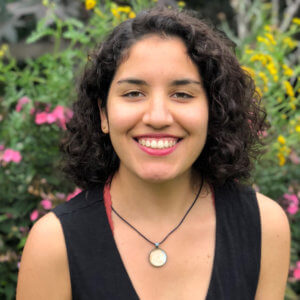
Elizabeth Kane (photo provided)
Junior Elizabeth Kane CHE ‘20 was awarded the Roberta M. Berns ’65 Memorial Research Award for her research on the association between snacking behavior and weight among culturally diverse, urban middle school students. The award – given by the BCTR – will fund Kane’s work during the 2019-20 school year.
Kane will work with a faculty mentor — Tashara M. Leak, an assistant professor in the Division of Nutritional Sciences – to study snacking behaviors among New York City eighth grade students participating in the Advanced Cooking Education (ACE) Program, a 4-H after school club.
Each week for 16 weeks, students will participate in a wellness session – including mindfulness activities, nutrition education lessons and cooking labs – and a professional development session that highlights careers in food and nutrition. Researchers will examine if the sessions affect snacking behaviors. The long-term goal is to make the program available at middle schools that receive Title I funding throughout New York and the U.S.
For the past year, Kane has worked in the Leak Research Group, which focuses on developing community-based interventions that address socioeconomic and environmental influences on food choices.

Tashara Leak (photo: Jason Koski)
“I’ve been incredibly impressed by how committed she is to addressing health disparities among racial and ethnic minorities residing in limited-resource communities,” Leak said. “For example, in preparation of working and engaging with our community partners, Elizabeth took the initiative to obtain a certificate in Engaged Leadership from the Office of Engagement Initiatives.”
Kane was recently admitted to the Honor’s Program of the Division of Nutritional Sciences. And last summer, she received a High Road Fellowship through the School of Industrial and Labor Relations to work with an early-intervention tutoring service for preschool children at risk for learning disabilities because they were exposed to lead.
“Her strong work ethic and devotion to conducting community-engaged translational research are the reasons that I believed that Elizabeth would make an excellent candidate for the Roberta M. Berns Memorial Research Award,” Leak said.
Kane said she was draw to this type of research because she is committed to the idea of health equity for youth.
“I now view research as one avenue for serving my community and for potentially working towards addressing some of the determinants of health in ways that practicing medicine, a dream I have had since middle school, alone cannot achieve,” she said. “Being named this year’s award recipient motivates me to continue to challenge the status quo of health, especially the health challenges underserved and underrepresented children face, through innovation, education and practice.”








